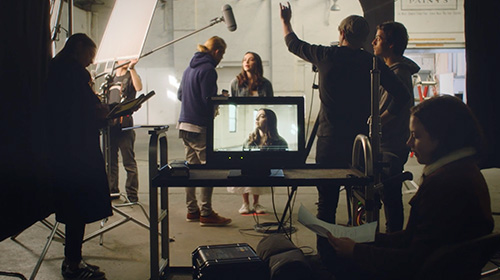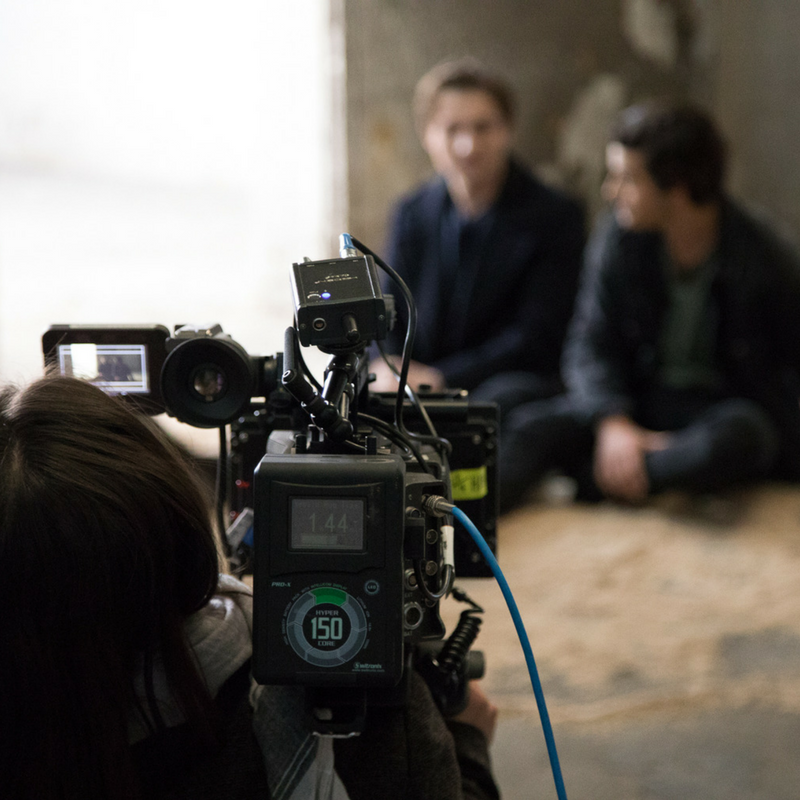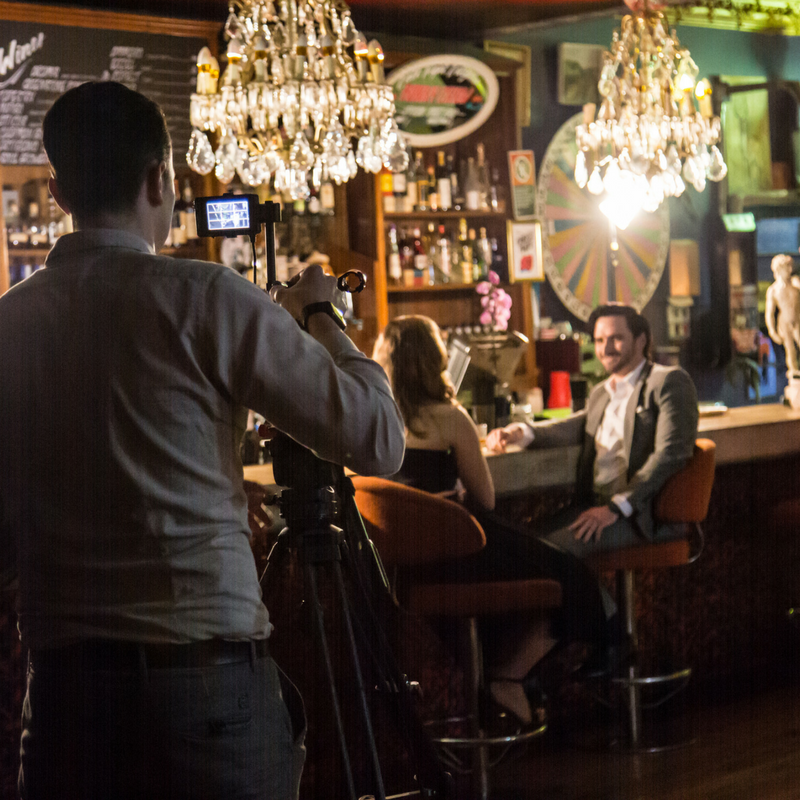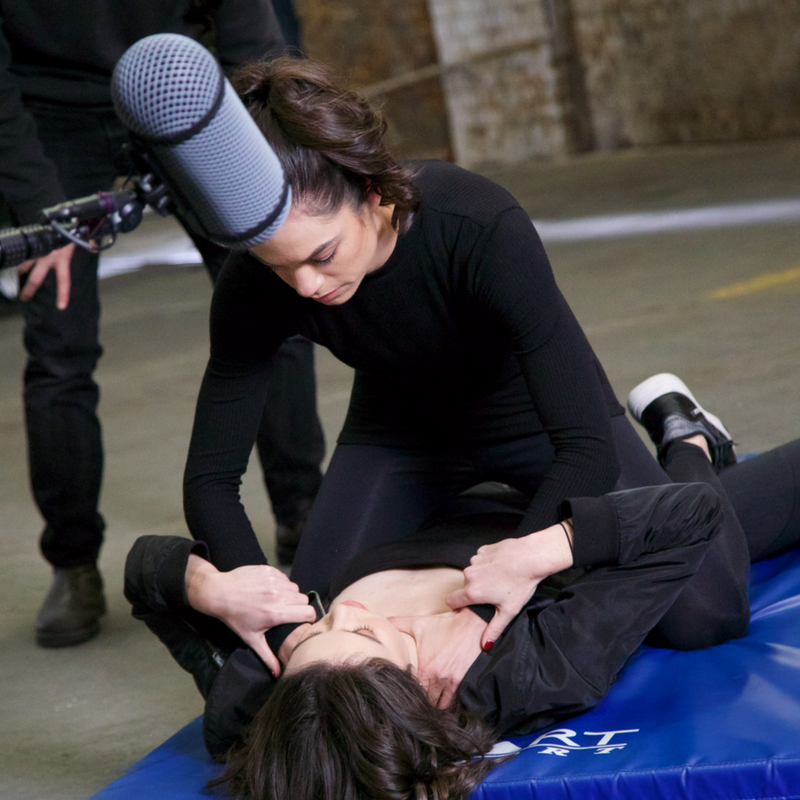08 Dec 2018 Screenwise Tips
Difference between Acting in Theatre and on Screen – Screenwise Tips
You may have years of experience performing in theatre. However, that doesn’t mean that you will be able to naturally start performing on screen.

You are going to need to understand the differences between the two mediums. Don’t worry – Screenwise offers some excellent acting classes that can help you make the change.
Timeline of Theatre and Screen Acting
Theatre acting can be traced back to the ancient Greeks, in the sixth century BC. For a couple of thousand years, theatre actors have needed to speak loudly and use dramatic body movements. The introduction of film was a major change for actors around the world.
In the 1930s, most film actors were used to performing on stage. They need to use highly exaggerated gestures and speak very loudly, which was usually unnecessary for film acting. Actors and directors soon realised that they needed to adapt to the new medium.
This is a challenge for modern actors as well, as many of them gained experience performing on stage. When they begin acting in television or movies, the tone, pace, movements, the entire performance needs adjusting.

How Is Film Acting Different from Theatre?
Here are some of the biggest ways that acting for film and television is different from theatre. If you are used to acting in theatre, then you might have difficulty adjusting to the demands of screen acting. You might benefit from taking a screen acting class.
The auditions are different
You need to dress down and be ready to have the camera in your face. Turnaround time for screen auditions are usually lower, so you don’t have as much time to prepare.
Generally, you won’t have as much space when you audition in front of a camera, you are going to need to be comfortable with people in much closer proximity.
You don’t need to do you much to get noticed while acting on screen
When you are acting for theatre, you need to be very vocal and use wide movements to make sure that you are seen and heard by your audience. Many of the people watching you from the back of the theatre are going to be 60 metres or more away from the stage, so they might miss the performance if your not noticeable.
This is not the case with acting for film or television. Modern cameras can pick up on very slight movements and can zoom in on each subject. They also use recorders that can hear you easily.
You have more freedom to improvise on film
Theatre acting is much more repetitive. When people watch a performance on stage, they usually expect the same performance every time, and the actors are expected to follow the script verbatim.
When you are acting for film or television, you have a lot more freedom to improvise. The audience has usually never seen the script before. Even if the script is based on theatrical performance, it does not need to be followed word for word. Unless the actor is portraying a historical event and quoting a specific figure, they are given some creative license.
The ability to improvise adds novelty to the material. However, it also means that the actor needs to understand the level of improvisation that is acceptable. Every director has their own level of comfort when it comes to allowing their actors to improvise. You need to work closely with the director to understand those limits.
Screen acting requires you to change your mindset rapidly between takes
When you are acting on screen, you need to shoot different types of scenes right after each other. This is usually due to budgetary and time constraints. If several scenes are shot in a specific location, then they will usually all be shot together.
This sounds like it is the most efficient way to film. However, it often comes at an emotional cost to the actors. While the scenes might be shot at the same location, the actors are usually expected to portray different emotions and perform physical activities of varying intensity. If they perform lots of scenes that require them to do extensive running for other physically intensive activities on the same day, then they might be easily exhausted. Changing mindset frequently can also be tiring.
You don’t face the same pressure to get your lines right on screen
You only have one chance to get things right on stage. You are acting in real-time, so any mistakes you made will be irreversible. If you forget any of your lines, then you need to remember them as quickly as you can. If you say the wrong thing, then the audience will remember. If somebody forgets one of the props, then you are going to have to find a way to make do without it. This takes its toll on theatre actors.
These problems aren’t as devastating or embarrassing on film. The director can usually call to have the screenshot again if there are any obvious issues that they can’t work around.
This helps take some of the pressure off of the actors. However, they are still expected to perform to the best of their abilities during every shot.

Screen acting is a different medium that takes time to master
Understanding the nuances of theatre and film acting can be overwhelming. This is why Screenwise offers a two-year Advanced Diploma of Screen Acting (10869NAT) course. By the time students complete it, they will be ready to tackle the challenges of acting on screen.
There are a lot of reasons to take a screen acting class:
- You will learn how to master an audition.
- You will learn how to perform for the camera, without making your performance look too dramatic.
- You will be prepared for the physical and emotional fatigue that may come with screen acting.

Start Screen Acting Classes
Many actors got their start in theatre, however that doesn’t mean they are able to shift to screen acting easily. The two acting styles are entirely different.
Screenwise offers a two-year Advanced Diploma of Screen Acting (10869NAT). If you are considering acting on screen, then you should give it some serious consideration. Take some time to understand the differences between theatre and film acting. This will help you decide whether getting a Screen Acting Advanced Diploma is in your best interest.

Share this
Career focussed
Training in acting for film & television
Screenwise offers full-time and part-time intensive creative and technical accredited screen acting programs.
Explore acting courses